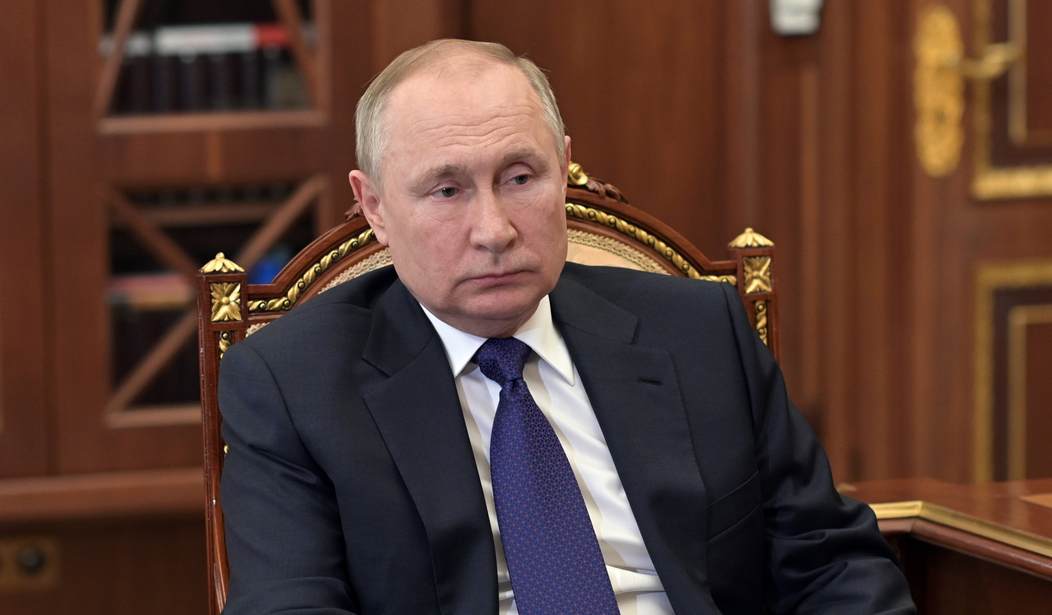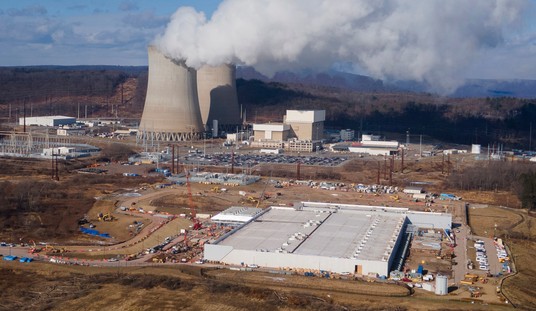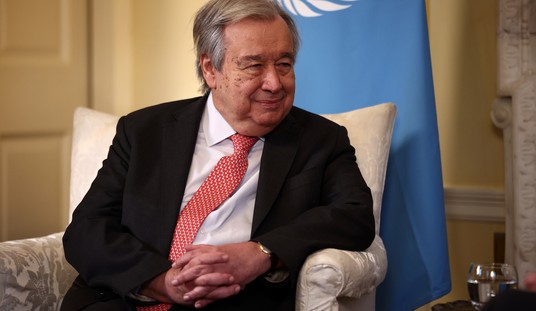Supporters of Ukraine, including in the Pentagon, are overflowing with happy talk today about how badly things are going for Russia in the Donbas. That was supposed to be Putin’s consolation prize after the aborted advance on Kiev. The Russian military would redeploy to the disputed territory in the east, encircle and crush the Ukrainian army there, and then take stock of their position. Maybe they’d make another go at Kiev, this time proceeding west. Or maybe they’d push south towards Odessa, a prize that has eluded Putin so far.
The first order of business, though, is taking the Donbas. That’s a far less ambitious operation than taking the whole country but it’s also far riskier in terms of Russian prestige. If they can’t make headway there — or if Ukrainian troops begin to push them out of the disputed territory — Putin faces a grand-scale humiliation. And that’s when he might begin to order “off the menu” of conventional warfare in desperation.
Again, this is a U.S. defense official talking so take it for what it’s worth. But before you dismiss his claims out of hand, consider that the chief of staff of Russia’s military probably wouldn’t bother visiting the Donbas if things were going well. Putting himself in harm’s way is the sort of risk a commander might take if major problems need to be urgently sorted out, not to pat his subordinates on the back for a job well done.
The Pentagon assesses that Russia’s progress in Ukraine’s eastern Donbas region has been “minimal at best,” with Russian forces continuing to suffer from “poor” command and control, low morale and recurring logistical problems, a senior U.S. defense official told reporters Monday…
Driving the news: The U.S. official described the Russians’ operations in the Donbas as “very cautious, very tepid, very uneven,” attributing some of the failures to “a risk and casualty aversion” that has persisted in both the air and on the ground.
“They’ll move in [to an area], declare victory and then withdraw their troops, only to let the Ukrainians take it back,” the official said.
I don’t know what to make of the last part. Are they being pushed out of these areas by the Ukrainians? Or are Russian losses so steep that they fear they lack the manpower to hold their positions if the Ukrainians counterattack, leading them to withdraw preemptively? Strategically, it makes no sense for Russia to proceed with “caution” and focus on “casualty aversion” knowing that gigantic shipments of American and European weapons are flowing into Ukraine. Soon the Ukrainians will have serious artillery and high-tech drones. Russia should want to push as hard as possible right now, before those weapons are in the field, to grab as much of the east as it can.
Instead:
What we see is lots of little attacks up and down the line–little effective coordination, no sense of an overall priority. The map of the Donbas is basically little eruptions of Russian efforts, with only fractional gains. https://t.co/mc1lgwIolG
— Phillips P. OBrien (@PhillipsPOBrien) May 2, 2022
In some places, it’s not “fractional gains.” It’s outright losses:
Ukraine’s military has pushed the Russian military about 40 km back from Kharkiv: Senior US Defense Official.
— Jennifer Griffin (@JenGriffinFNC) May 2, 2022
O’Brien’s best guess at what’s happening is that Russian units that took a beating around Kiev and Kharkiv and were sent into battle in the east before they had time to recover and be properly reconstituted. That would explain the need for “casualty aversion,” which has never been a hallmark of Russian warfighting. If they’re sitting back, making token advances here and there, it may be that many units aren’t at full strength and their commanders fear they’ll break if pushed now into a sustained fight. The front line in the east is a long one; the thinner the Russian ranks get, the more gaps in that line there’ll be.
Reporter Michael Weiss has a source in Estonian intelligence who also says Russia’s Donbas campaign is floundering. The obvious move now if manpower is an issue is for Putin to order a general mobilization next week, as many observers expect. But that’s easier said than done:
“I can’t exclude that he will use a tactical nuclear weapon. The risk for him: Russia’s General Staff will tell him to fuck off. Then he’d be a dictator without an instrument of power. It would be the end for him…"
— Michael Weiss 🌻🇺🇸🇮🇪 (@michaeldweiss) May 2, 2022
Enthusiasm for the war among new Russian conscripts may be less robust than Putin expects as well. In fact, there are reports floating around of a Russian commander *shooting* his own troops because they refuse to fight.
The worse things get for Russia, the more exuberant American officials seem. Which is beginning to make some of their European counterparts anxious:
There is a sense in Europe that “the U.S. is dragging everyone into a different war,” said François Heisbourg, a French defense analyst, citing similar comments by President Biden about “the butcher of Moscow” and how “Putin must go.”…
“To help Ukraine prevail is not about waging war against Russia for reasons related to its governance,” Mr. Heisbourg said. “Regime change may be a vision, but not a war aim.”…
Talk of victory over Russia “gives easy ammunition to the other side and creates the fear that the West may go further, and it’s not what we want,” said Ulrich Speck, a German analyst. “We don’t want to cut Russia into pieces.”
Lloyd Austin declaring that America’s goal is to “weaken Russia,” not preserve Ukrainian sovereignty, was a Kinsleyan gaffe of the highest stakes. What he said was true, but it’s foolish to rhetorically expand the war in a way that positions Russia’s archenemy as the great victor from its folly. Russian pride can take only so many wounds before it requires retaliation.
For now, though, the Kremlin seems to be coming to terms with the fact that there’ll be no great victory to celebrate on “Victory Day” next week. The Russian foreign minister said today that May 9 will have no special significance to the Russian war effort in Ukraine. Russian TV is echoing that point too. The expectations-lowering phase of the campaign has begun.
Behold another marvelous sampling of Russian propaganda, so shamelessly upside down and backwards that it would make Goebbels blush. And yet, there is one revelatory nugget of information: sounds like the Kremlin is no longer aiming for May 9th to claim any sort of a "victory." pic.twitter.com/DURM29nsC5
— Julia Davis (@JuliaDavisNews) May 2, 2022







Join the conversation as a VIP Member